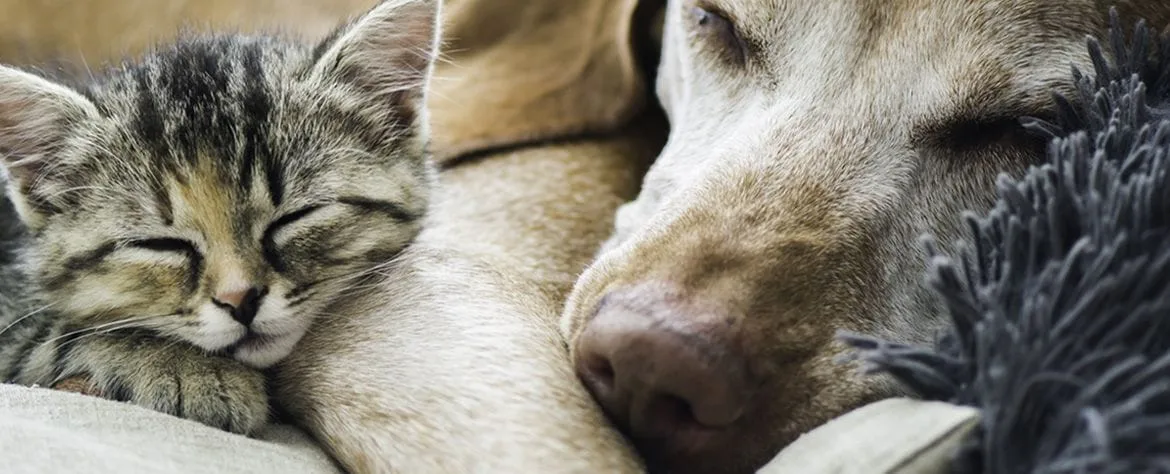Joint problems plague dogs just as commonly as they do humans. That's why orthopedic care can improve your beloved friend's quality of life. Common Orthopedic Issues A dog's joint problems may result from a variety of orthopedic injuries and illnesses. In some cases, these vulnerabilities are partly
Read more

When you hear the phrase domesticated animals, you probably automatically think of cats or dogs. But, what about fennec foxes, prairie dogs, pigs, sugar gliders, and even skunks? Although it’s not very common, each of these animals can also be domesticated. More and more people are opting out of getting a traditional pet and deciding to add a more unusual addition to their family.
Before you decide to become an owner of one of these animals, it’s important that you take into consideration the special care it will need compared to other, more typical pets. You will also need to review your state’s laws and regulations to make sure that it is legal to own one of these animals. Select one of the articles below to find out more about the options you have for domesticated animals as well as what they eat, what type of habitat they need, and more.
-
Orthopedic Care for Dogs
Category: Newsletter Library, Keeping Pets Healthy
-
Natural Stress Relief for Pets
Category: Newsletter Library, Keeping Pets Healthy
One of the most common complaints from pet owners is that their pets are destructive or disruptive when they are left alone. Dogs may bark, howl, chew, dig, defecate or urinate. Although these behaviors are often a sign that dogs need to be housebroken or crate trained, they can also indicate that a
Read more -
How to Take Care of Your Pet's Nails
Category: Newsletter Library, Keeping Pets Healthy
Many pets dislike having their feet touched and their nails trimmed. Owners worry that they may hurt their pets especially if the pet struggles when having their nails cut. This is probably why many owners take their pets to their veterinarians or groomers to have this done. If you are thinking of trimming
Read more -
Home Dental Care
Category: Newsletter Library, Keeping Pets Healthy
Home dental care for your cat or dog has the same goal as home dental care for yourself, to remove dental plaque. Plaque is the sticky, whitish film with the bad taste and offensive odor that accumulates inside the mouth. Plaque is about 85% bacteria and will mineralize to form tartar. Plaque accumulation
Read more -
Get Down With Your Dog
Category: Newsletter Library, Newsletter Archive, Fun with Pets
Each year fifteen million Americans engage in the practice of yoga. Many of the same Americans own some of the over seventy-three million dogs owned in the United States. If you put yoga and dogs together, you get doga (pronounced DOH-gah). Doga is sweeping the nation including large American cities
Read more -
Having a Positive Experience at the Dog Park
Category: Newsletter Library, Newsletter Archive, Fun with Pets
Dog parks: they are great for socialization, exercise, and mental stimulation for many dogs. But certain dogs may feel threatened or anxious. Whether you and your dog have a good dog park experience or a bad one depends largely on your understanding of your dog, advanced preparation, proper training,
Read more -
The Pet Economy
Category: Newsletter Library, Newsletter Archive, Fun with Pets
If there's still any doubt whether the pampering of pets is getting out of hand, the debate should be settled once and for all by Neuticles, a patented testicular implant that sells for up to $919 a pair. The idea, says inventor Gregg A. Miller, is to "let people restore their pets to anatomical preciseness"
Read more -
Traveling with Your Pet
Category: Newsletter Library, Newsletter Archive, Fun with Pets
Traveling with your pet can be rewarding but challenging if not enough preparation has been made. Planning will help your trip go smoother and should include acquiring any paperwork that is needed, consideration of the temperatures to be experienced and how to deal with them, and obtaining equipment
Read more -
Flea Preventative Medications: Oral vs. Topical
Category: Newsletter Library, Fleas & Parasites
Fleas are not only a source of irritation and frustration, but they also pose a serious health threat to animals. These tiny external parasites can carry a variety of diseases, including bubonic plague, and severe infestations may cause deadly levels of blood loss in very small or young pets, according
Read more -
Fleas, the Frustrating Pest
Category: Newsletter Library, Fleas & Parasites
Consider the following scenario: You arrive home from a long flight from a wonderful, two-week vacation. As you drive home, you remind yourself the boarding kennel is already closed and you have to wait until tomorrow to pick up your dog, Max. You finally walk in the front door, happy to be home. As
Read more -
Giardia: A Parasite of Many Species
Category: Newsletter Library, Fleas & Parasites
If you have a friend who camps or fishes, you may have heard that they had been infected with Giardia. Or your veterinarian may have told you that your cat or dog had Giardia. In either case, you probably wondered, can I catch it as well? Giardia is a protozoan parasite (one-celled organism) that can
Read more -
Stress Relief for Pets
Category: Newsletter Library, Behavior & Training
Stress isn't just a problem for humans; your pet can experience the negative effects too. Illness, changes in the usual routine or the death of another pet can lead to an increase in your pet's anxiety level. Luckily, there are a few things you can do to help your furry friend relax. Signs of Stress Your
Read more -
Vetopedia
Category: Today's Veterinarian
Vetopedia is a glossary of terms used by vets in treating animals. A B C D E F G H I J K L M N O P Q R S T U V W X Y Z AAFCO Association of American Feed Control Officials; an organization which sets standards for pet food ingredients and minimum daily requirements. Abdomen A region of the body between
Read more -
Hip Dysplasia
Category: Pet Health, Orthopedics
Hip dysplasia is a congenital disease that, in its more severe form, can eventually cause lameness and painful arthritis of the joints. It is caused by a combination of genetic and environmental factors. It can be found in many animals and, rarely, humans, but is common in many dog breeds, particularly
Read more -
Diabetes Mellitus
Category: Pet Health, Chronic Conditions
Diabetes Mellitus (DM) is a life long disorder of dogs and cats that results when the pancreas fails to produce enough insulin to meet the animal's needs. Insulin is a hormone needed to transport glucose (blood sugar) into the body's cells. When there is a lack of insulin in the body, blood glucose rises
Read more -
Veterinary Acupuncture
Category: Video Newsroom, Technology and Science
The use of acupuncture is growing in popularity among veterinarians and the practitioners say they are impressed with the results. Only a few decades ago, the use of acupuncture in veterinary medicine was virtually unheard of. In recent years, the use of acupuncture in veterinary medicine has been steadily
Read more

Contact Us
We look forward to hearing from you
Location
Find us on the map
Office Hours
Our Regular Schedule
Office Hours
Monday:
8:00 am-5:30 pm
Tuesday:
8:00 am-5:30 pm
Wednesday:
8:00 am-5:30 pm
Thursday:
8:00 am-12:00 pm
Friday:
8:00 am-5:30 pm
Saturday:
8:00 am-12:00 pm
Sunday:
Closed
